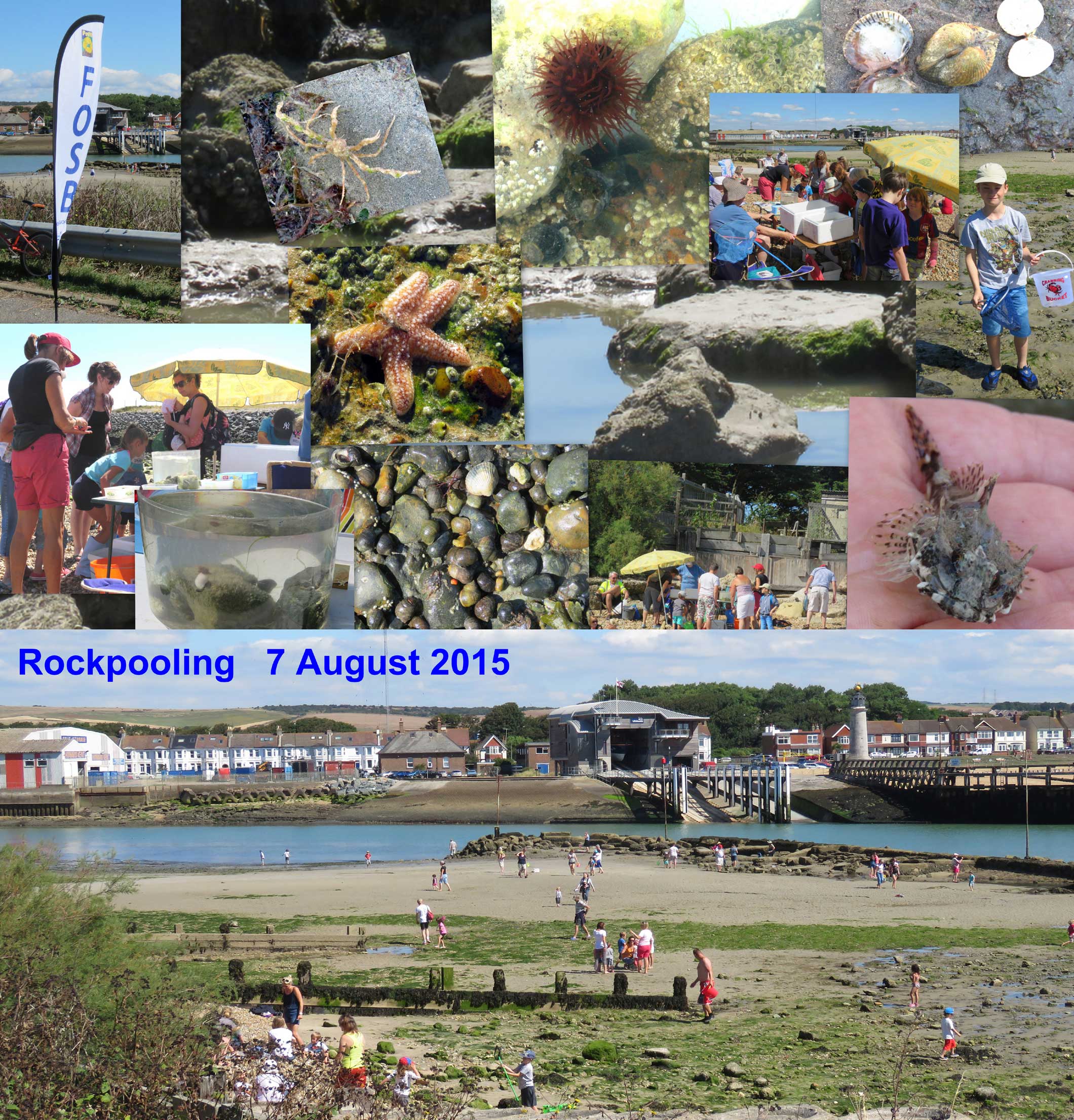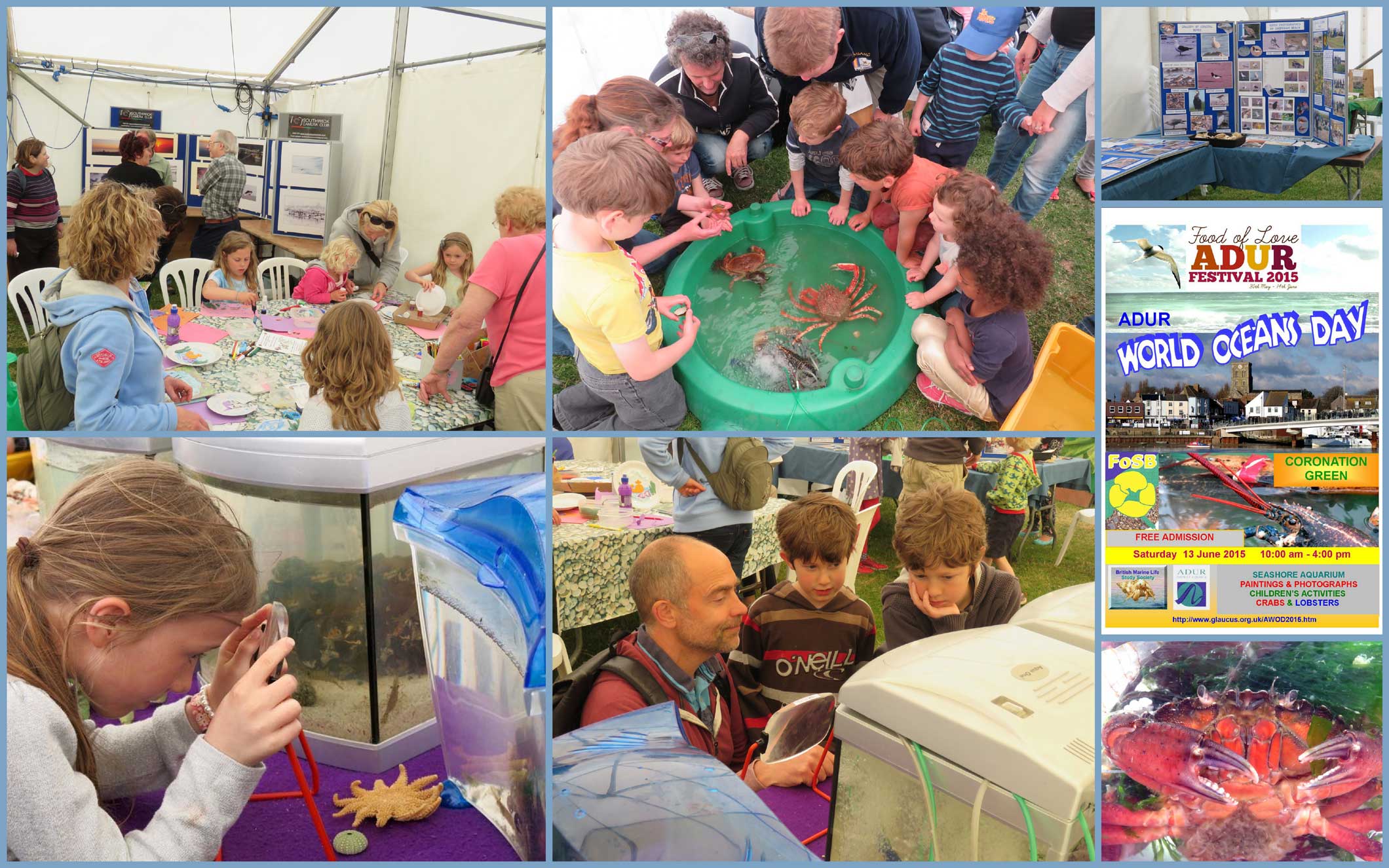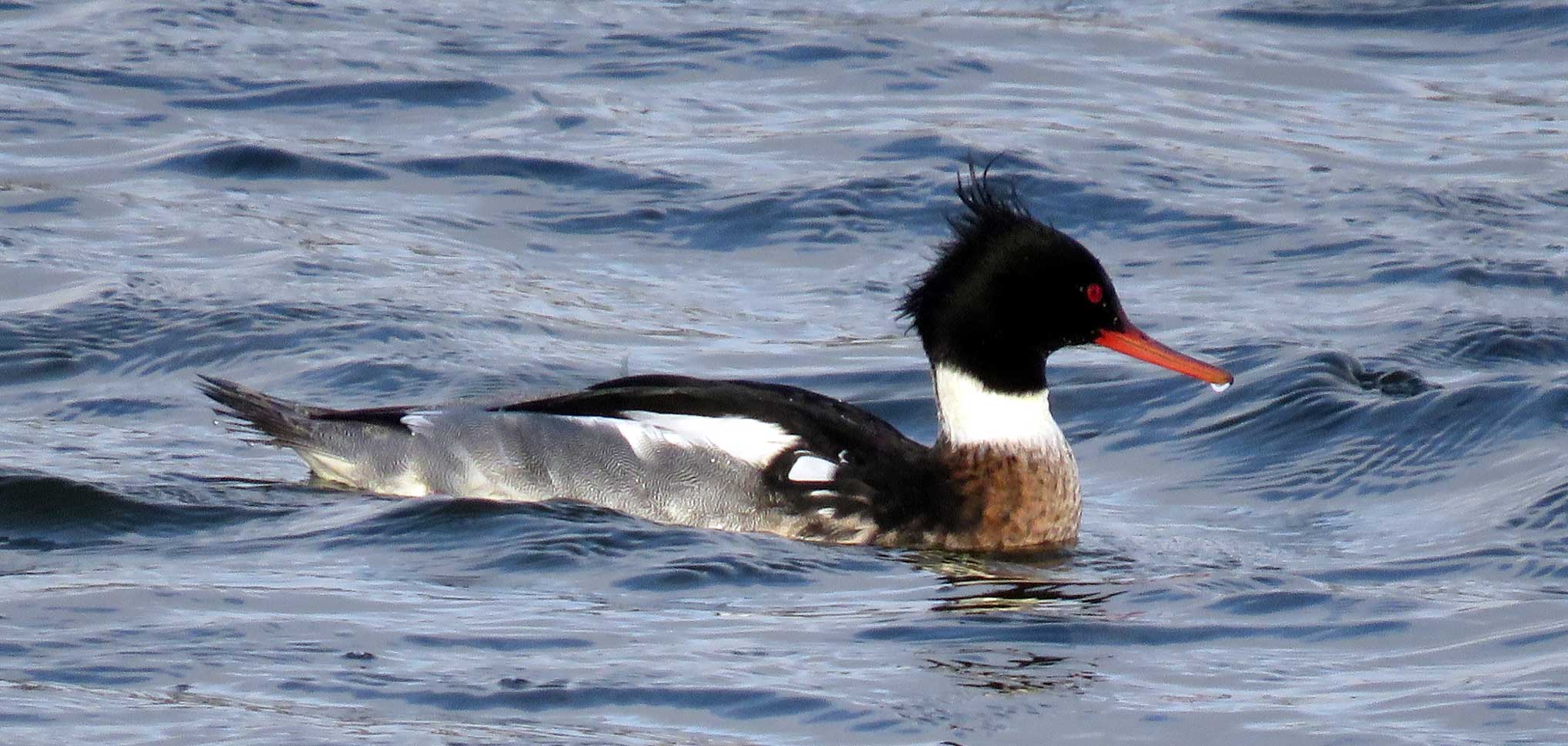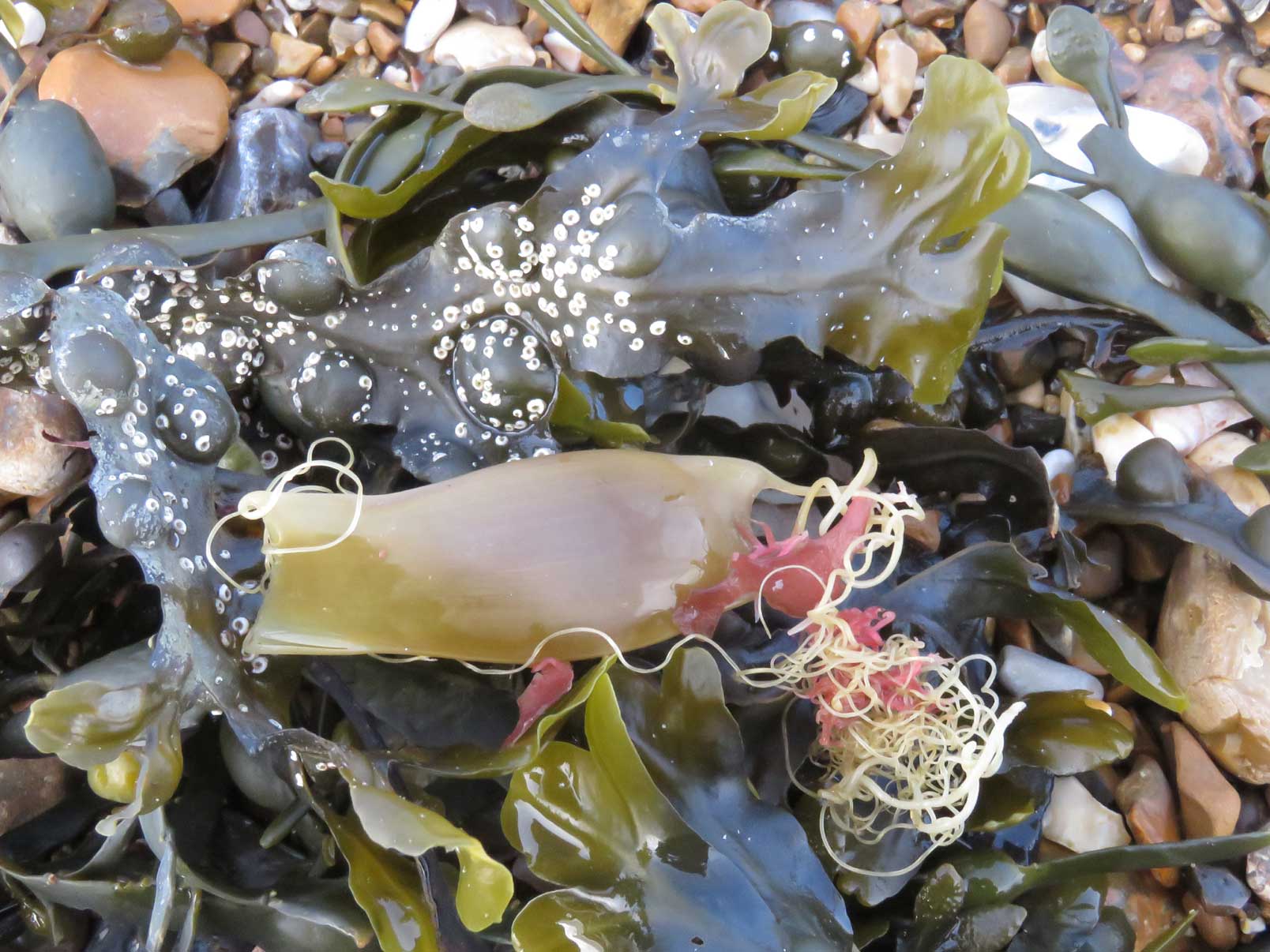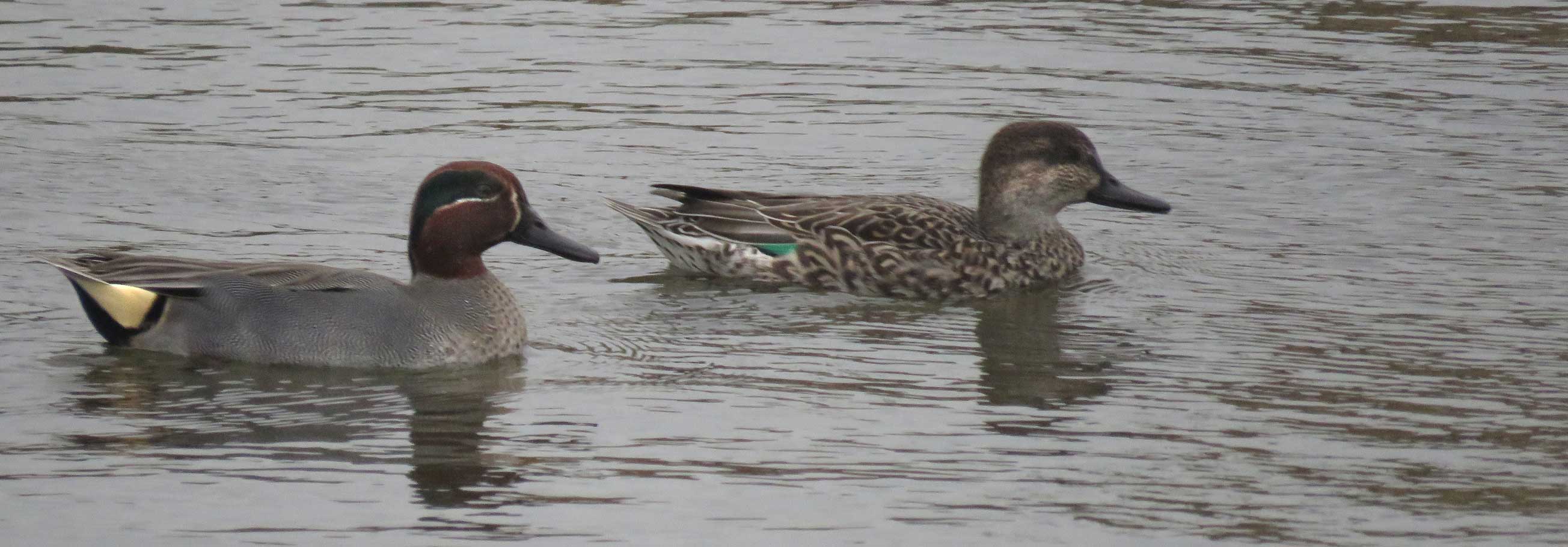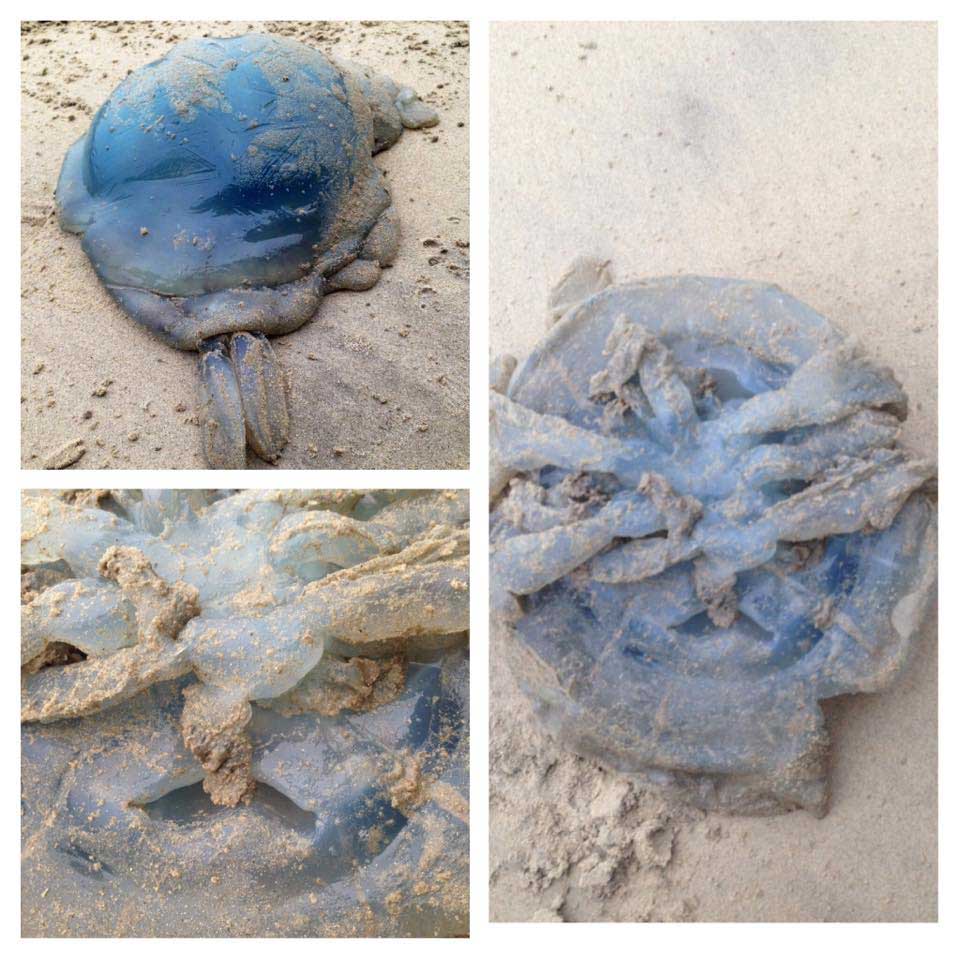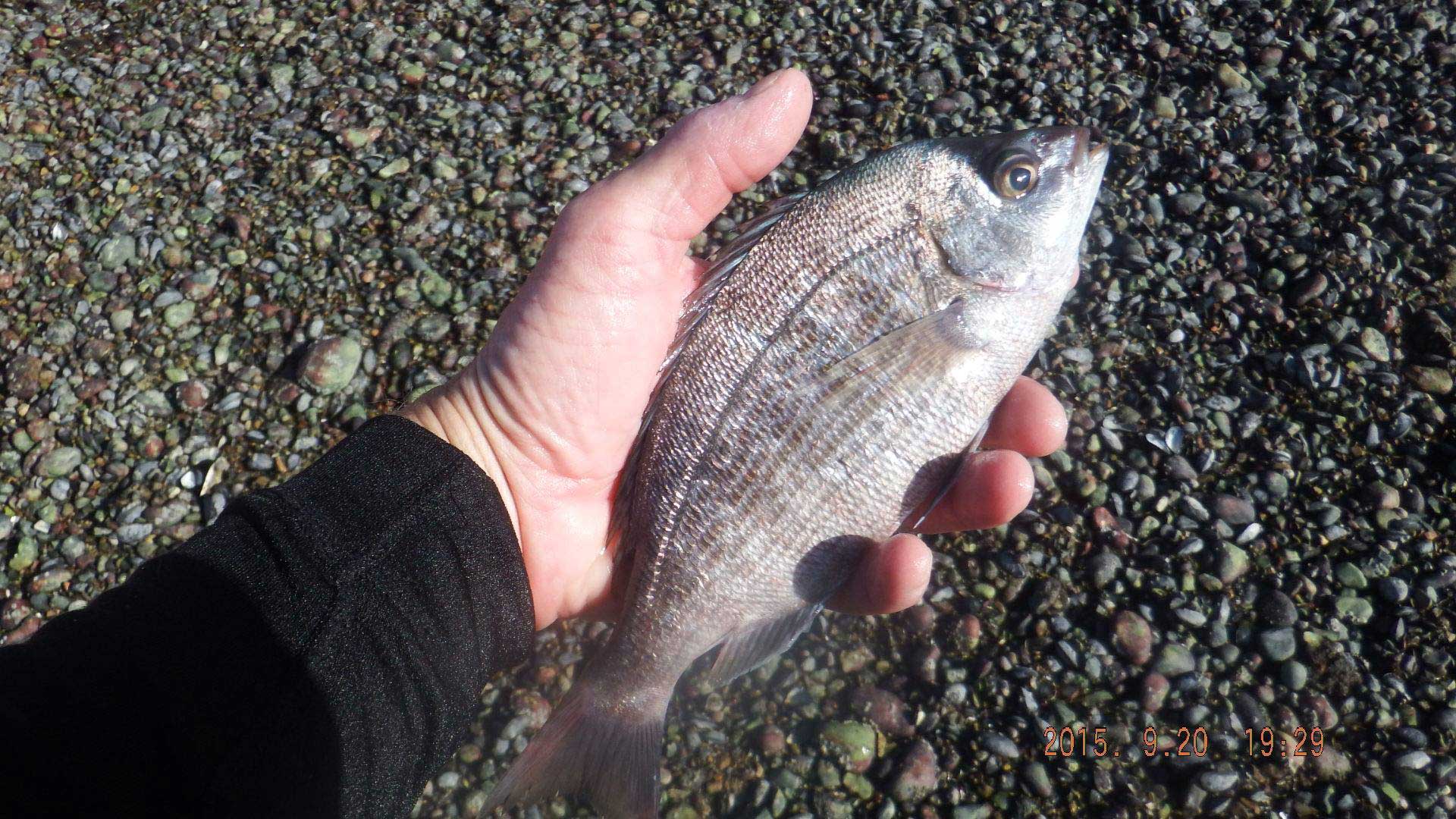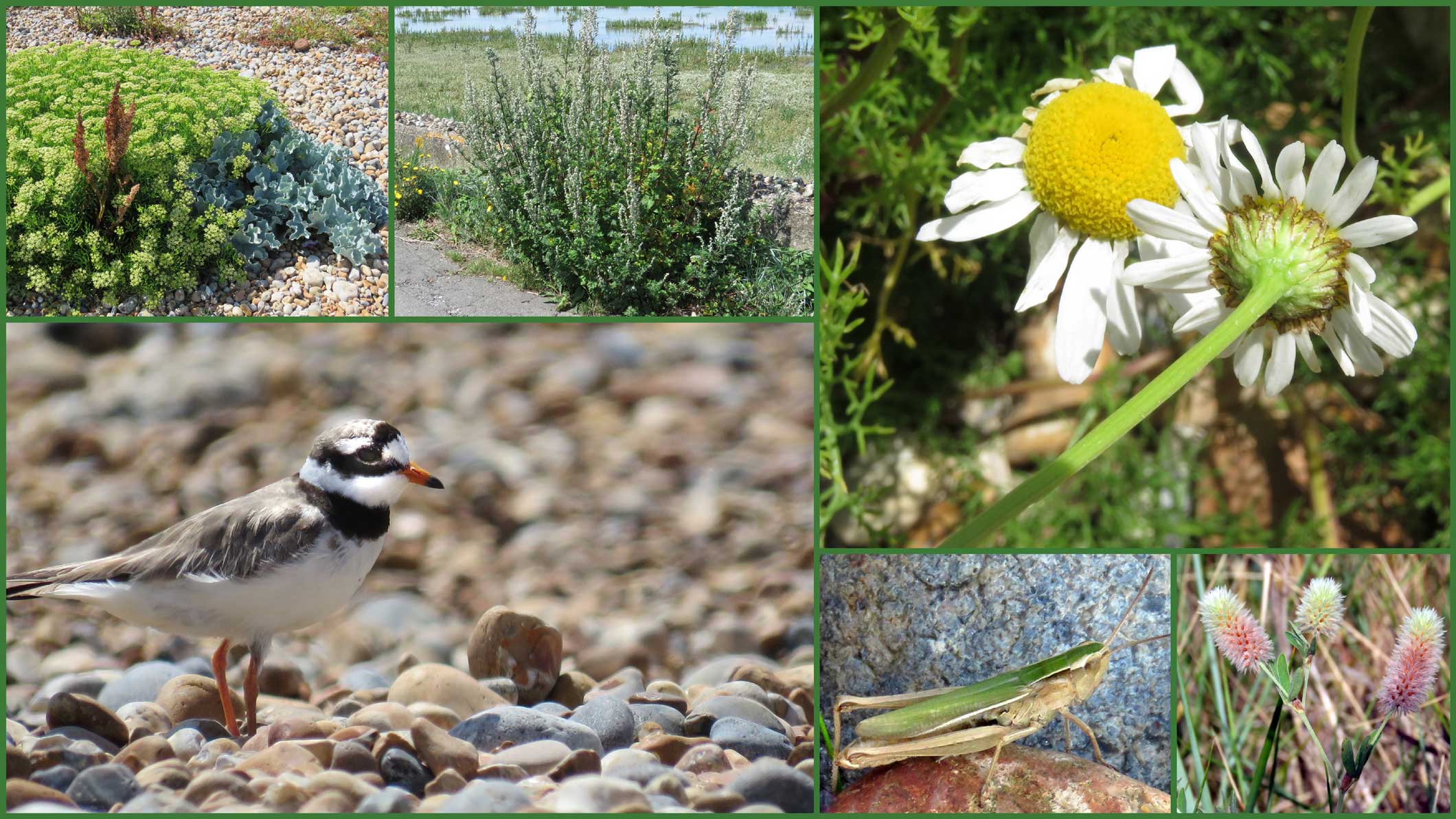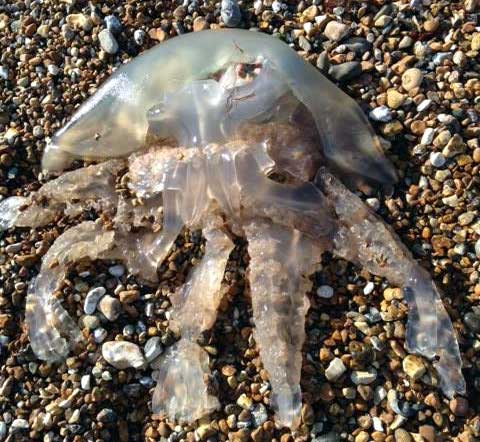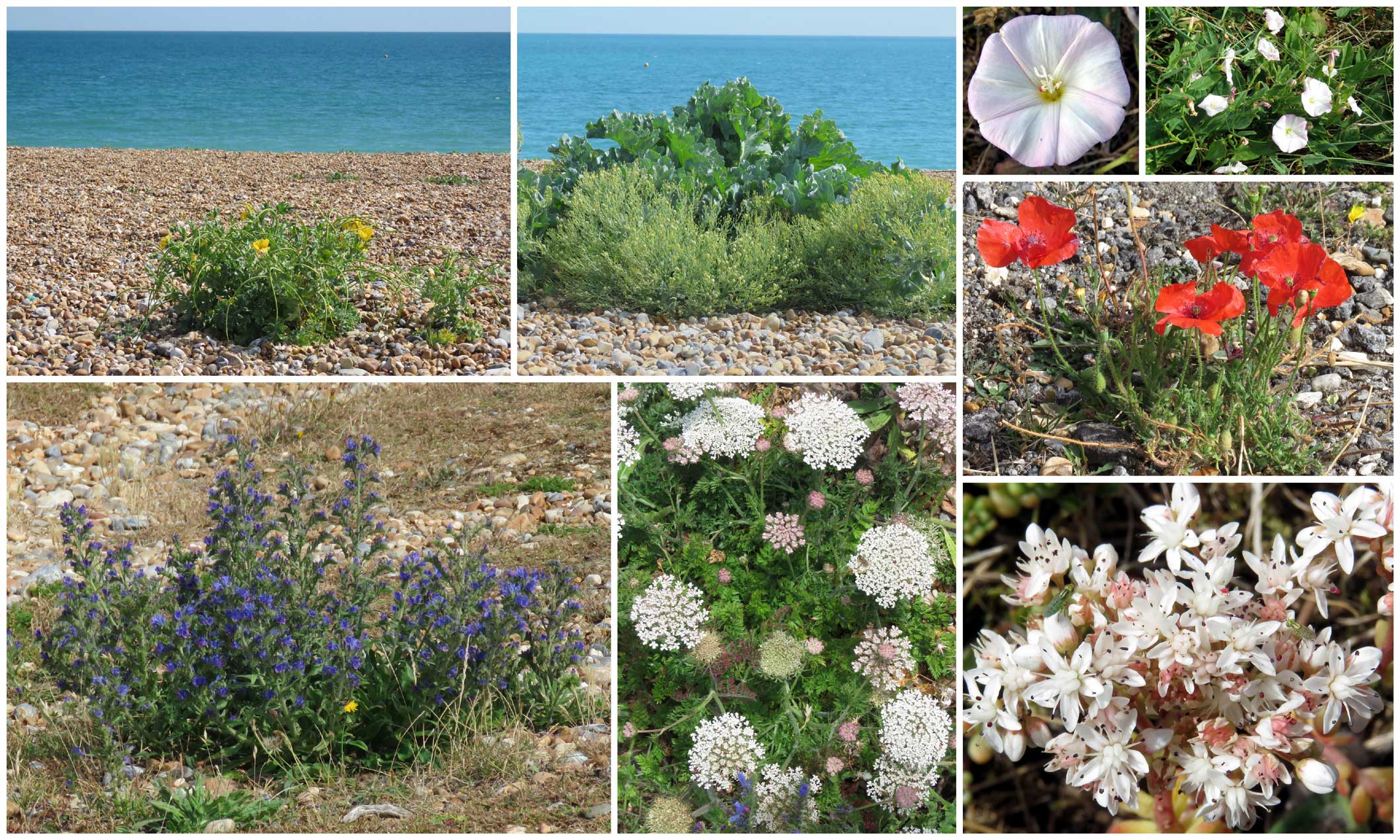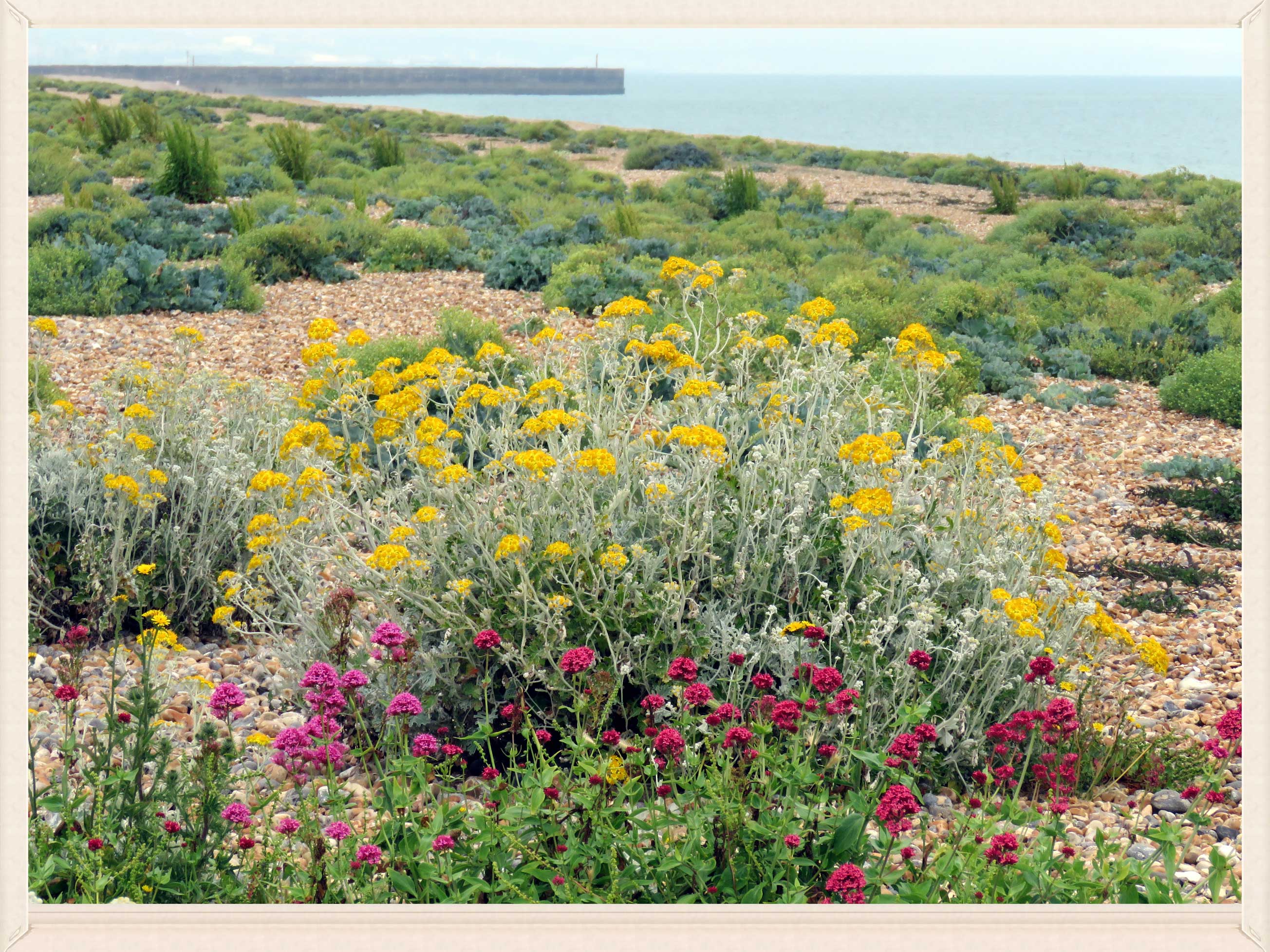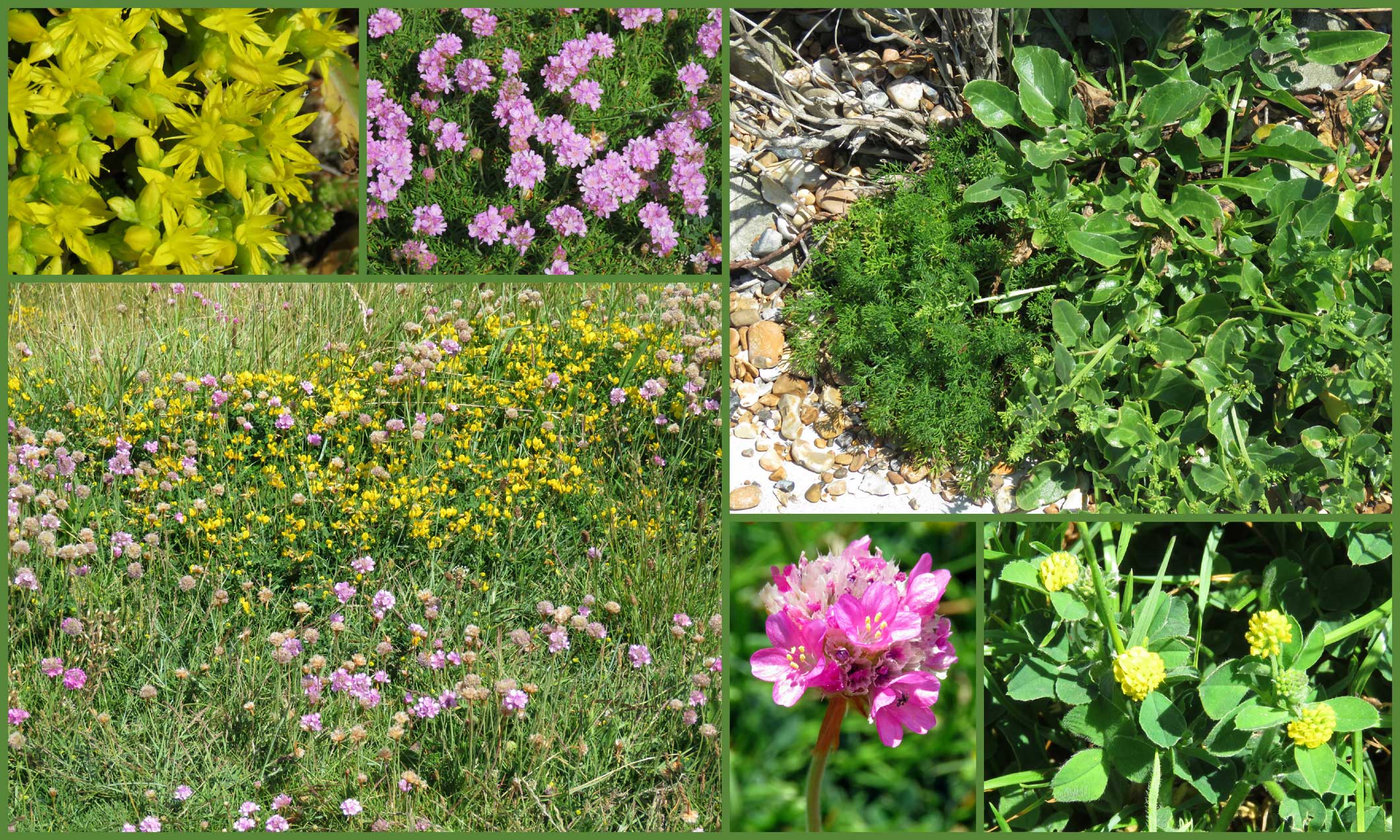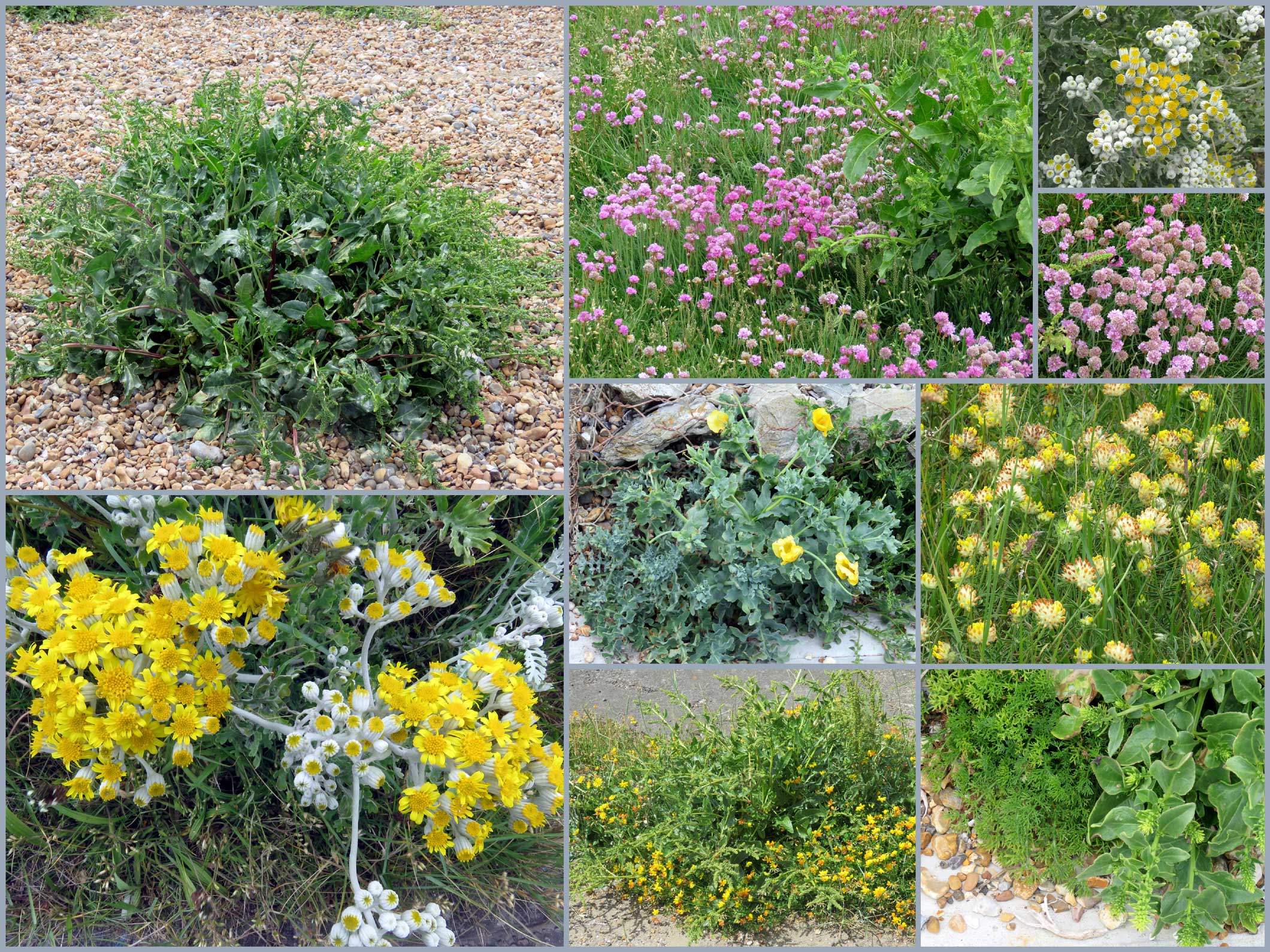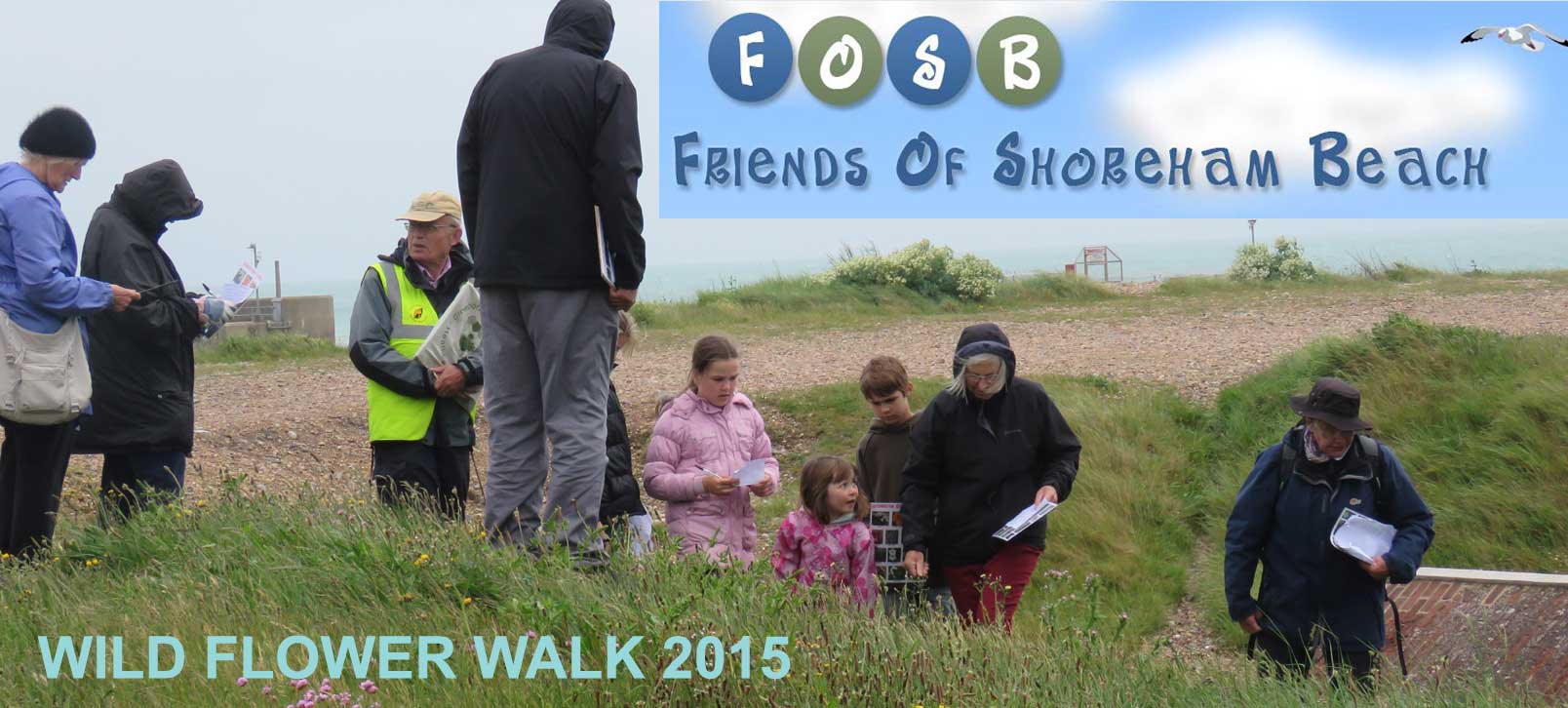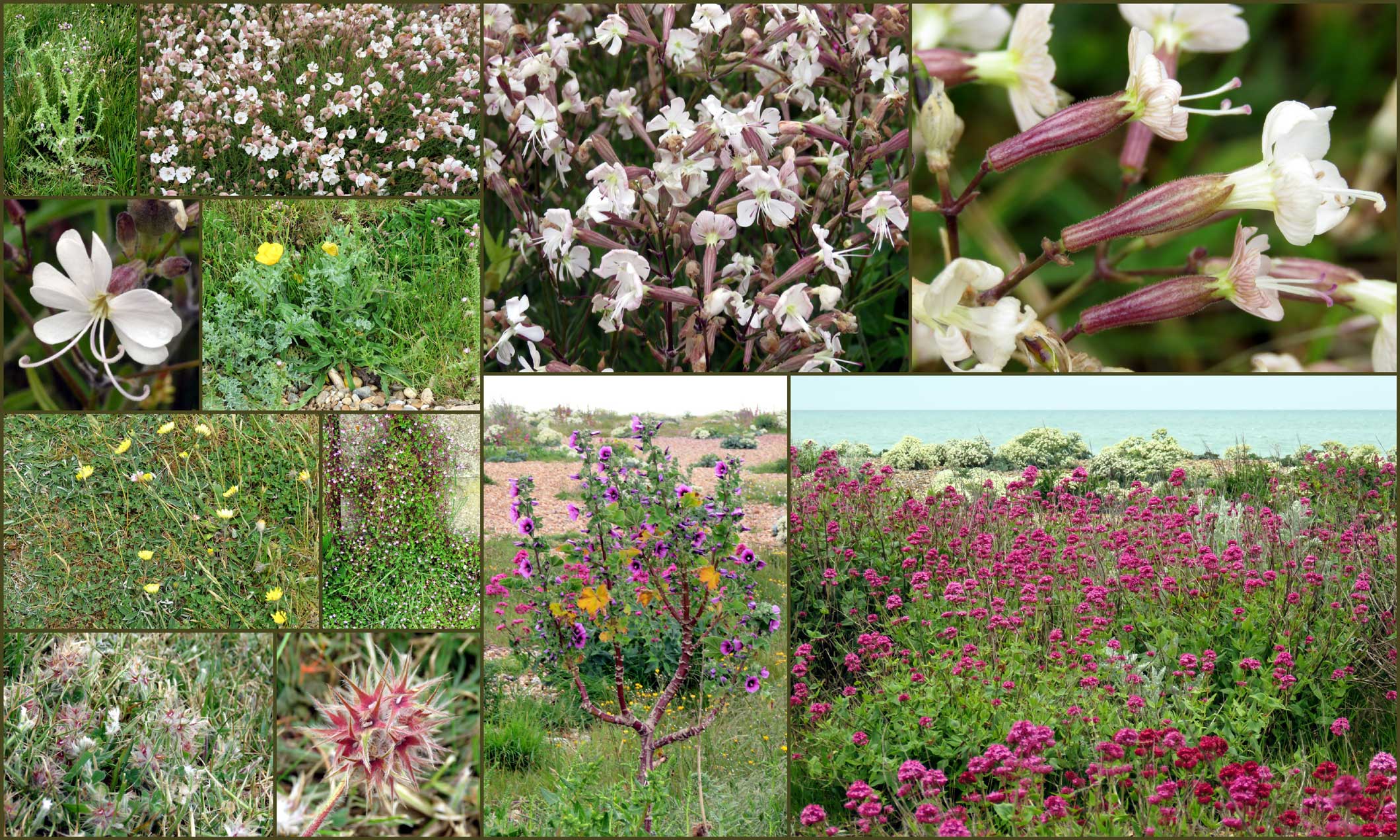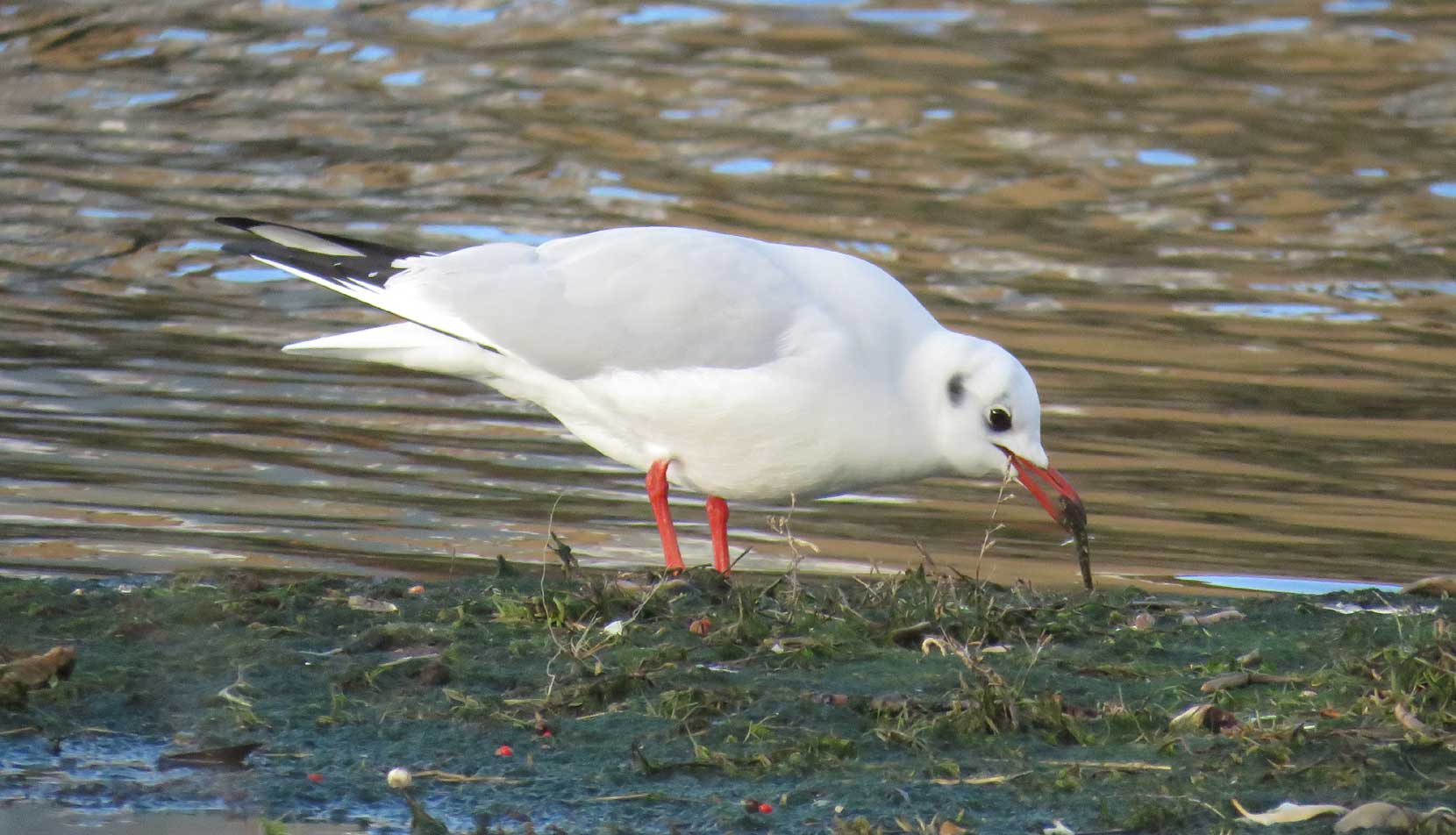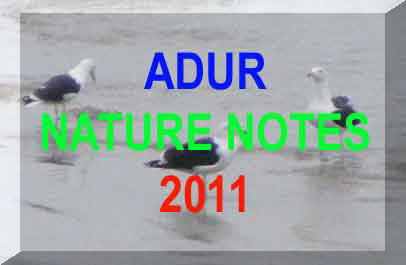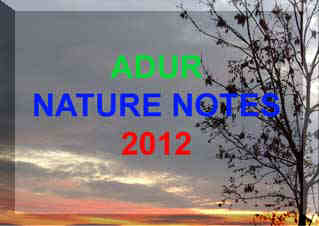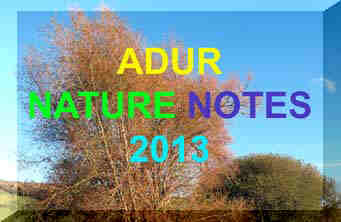
- Adur Marine Life Reports
- Coastal & Intertidal 2015
Reports
from
the sea, shore
and coast, including Widewater Lagoon
Information
Coastal saline lagoons and the Water Framework Directive (NECR039)
A number of coastal saline lagoons in the UK have been identified as ‘water bodies’ under the Water Framework Directive. This means that there is a requirement to develop type-based classification tools to help assess their ecological status. This study was commissioned by Natural England to inform future work of the UK Technical Advisory Group and Marine Task Team in developing a national consistent approach to the assessment of lagoons under the Water Framework Directive.
 |
 |
|
(Community Group) |
(Community Group) |
Events
7 August
2015
Rockpooling at
Shoreham Fort Beach
9:30 am start prompt to view the beach as the tide falls to low tide at 11:00 am. Join our resident marine biologist, Steve Savage to collect and explore the myriad flora and fauna of the pools that form as the tide goes out. Children will be fascinated by the tiny fish and plants. Please wear wellies or beach shoes and bring along plastic containers for your finds.
Members
are free otherwise £2 per child.
Beach
Art Competition follows
13
June 2015
Adur
World Oceans Day
World
Oceans Day was first declared as 8th June at the Earth Summit in Rio de
Janeiro in 1992.
Events
occurred all around the world on and around this day.
Adur
was one of the UK leaders in presenting the sixteenth environmental exhibition
of World
Oceans Day on Coronation
Green,
Shoreham-by-Sea.
The
British Marine Life Study
Society presented the usual exhibition of
lobsters
and crabs.
The Friends of Shoreham Beach (FOSB)
took an active role with their display of the wonders of Shoreham
Beach. Wildlife writer Steve
Savage presented the whale
and dolphin exhibition. Nikki Hills
on behalf of the Sussex
Wildlife Trust produced an interactive
display on the sea and seashore for the younger age group.
Exhibitors are available to find the time to answer questions about marine
life.
Other
participants will include Southwick
Camera Club with an exhibition of seascapes and marine life, and Shoreham
Sea Scouts.
World
Oceans Day on facebook
Adur
World Oceans Day on facebook
United
Nations: World Oceans Day.
Reports
 |
Goose Barnacles, Lepas anatifera, have been washed ashore in Dorset in the last few months and now the first strandings of the year were found on Shoreham Beach, Sussex, left by the recent high spring tides, washed ashore attacked to floating objects, a small boat fender and on two bottles. The Goose Barnacles were probably alive when left on the strandline with the usual wracks, mollusc shells, Mermaid's Purses, cuttlebones, etc., but died, or were dying (after ten minutes waiting for one or two the filamentous cirri or feeding tentacles to be seen moving), after being left high and dry out of the water.
Goose Barnacles are a widespread large pelagicbarnacle found attached to objects by their long stalk or peduncle in warmer seas than around Britain and most likely have been blown on floating objects across the Atlantic Ocean from the seas around the south-eastern United States of America.
BMLSS
Beachcombing
BMLSS
Barnacles
13
December 2015
On
a grey afternoon, there were nine Mute
Swans, 14 Teals,
a Little Egret
and two dozen or so mixed gulls
on Widewater Lagoon.
8 December
2015
A
Greenshank
was spotted on the western part of Widewater
Lagoon.
1
December 2015
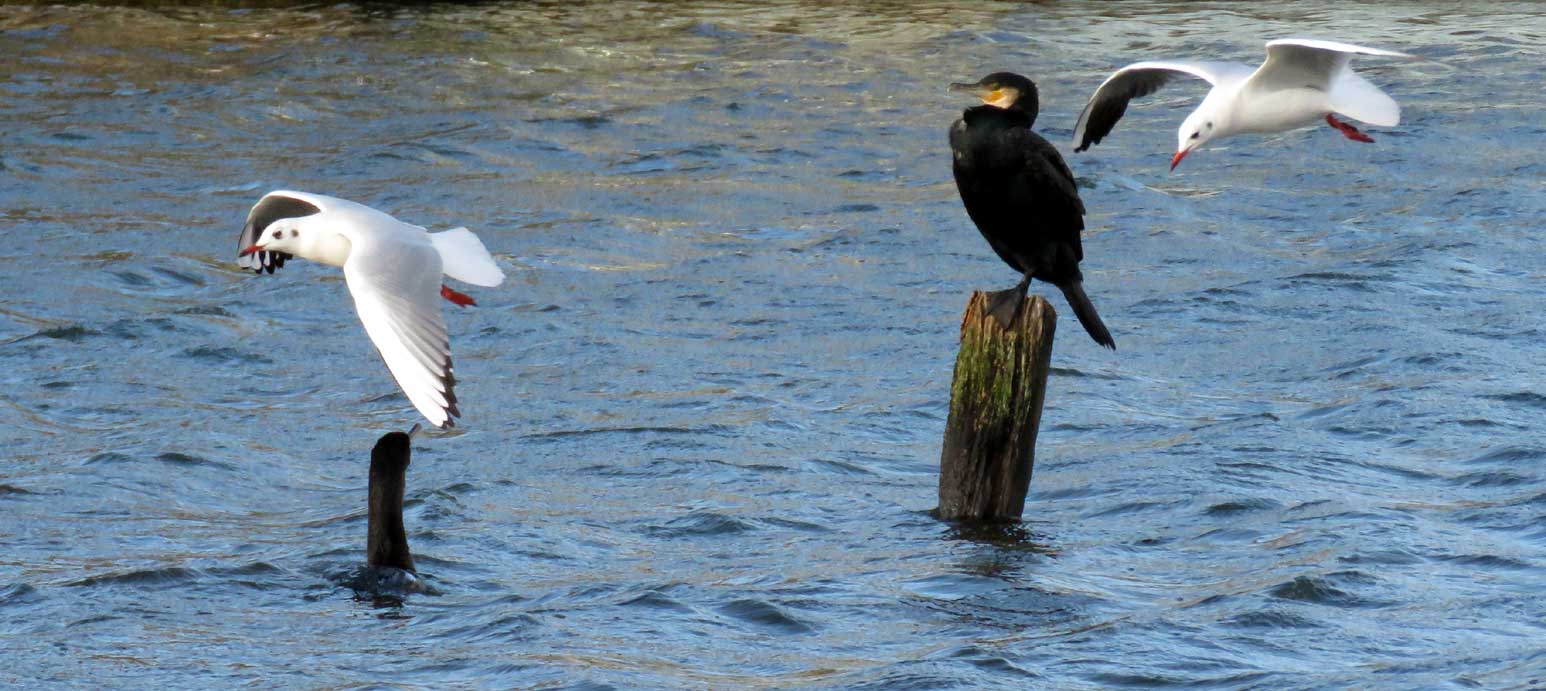 |
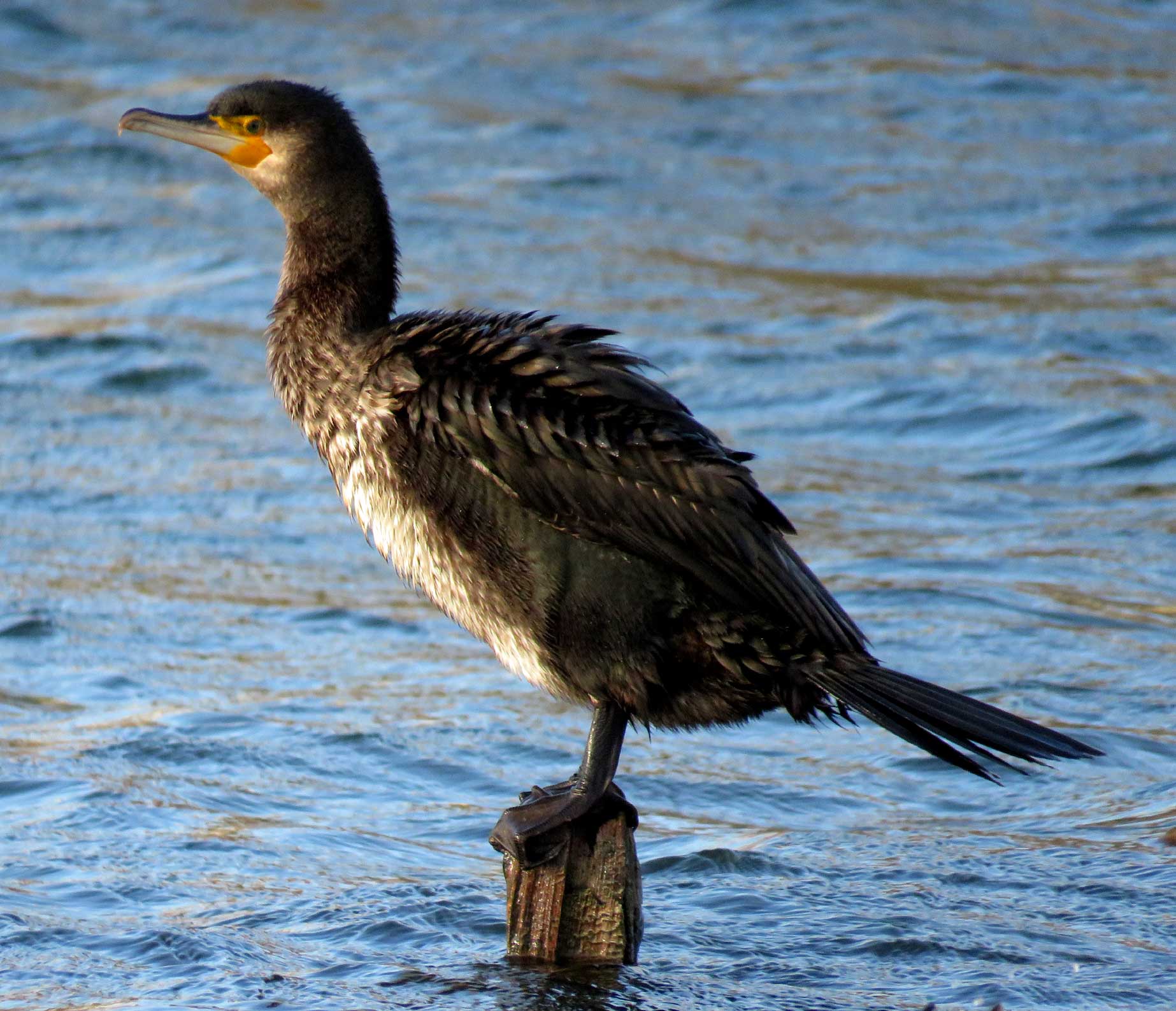 |
There was a pair of Red-breasted Mergansers far out on the surface of Widewater Lagoon and frequently diving under, two Cormorants, one swallowing more than a dozen small fish (probably 3-spined Sticklebacks), and nine Mute Swans. Black-headed Gulls were very interested in the fishing by the Cormorant.
23
November 2015
Two
Sun
Dogs* (=parhelia)
were seen through the Cirrus
clouds and over the sea in the afternoon as the Sun
fell lower in the sky. Gentle waves rolled across the submerged sand on
a low neap tide in the middle of the afternoon. The wind had dropped and
Widewater
Lagoon was mill calm with reflections in the
weak sunshine. I also discovered a flint pebble with just a few markings
of a fossil sea urchin.
*Sun
Dogs are a member
of a large family of halos, created by light interacting with ice crystals
in the atmosphere. Sun dogs typically appear as two subtly colored patches
of light to the left and right of the Sun, approximately 22° distant
and at the same elevation above the horizon as the Sun. They can be seen
anywhere in the world during any season, but they are not always obvious
or bright. Sun Dogs
are best seen and are most conspicuous when the Sun is close to the horizon.
Shoreham
Weather 2015
Eight Mute Swans, including at least four fully grown cygnets graced Widewater, with a handful of Little Grebes, at least eight Teals, a few Mallards, a Little Egret a Redshank, and frequent omnipresent gulls.
20 - 23 November 2015
Great
Northern Diver
Photograph
by Jan Charteris
A Great Northern Diver, Gavia immer, was seen by multiple birdwatchers in Shoreham Harbour between Aldrington and Fishersgate. It flew around and was spotted settled on the canal feeding on Greater Pipefish.
BMLSS Pipefish
20 November 2015
The weedy strandline contained very little of interest at Ferry Road, Shoreham Beach. The white spirals on Bladder Wrack, Fucus vesiculosus, are the empty shells of the worm Spirorbis borealis and the empty egg case is that of the Lesser-spotted Dogfish, Scyliorhinus canicula. A few cuttlebones Sepia officinaliswashed up.
10 November 2015
On a grey day three Cormorants fished in Widewater with two Little Egrets, a pair of Teals, four Mute Swans, three Mallards and frequent gulls.
1 November 2015
A 45 cm diameter Barrel Jellyfish, Rhizostoma octopus was washed ashore on Southwick Beach and discovered in the morning.
29
September 2015
A
first year juvenile
Mediterranean Gull
made a visit to Widewater Lagoon.
A Small Copper Butterfly was seen visiting Ragwort near Shoreham Fort on Shoreham Beach.
21
September 2015
The
white rump of a Wheatear
was
clearly seen in the light rain on the shingle between
Widewater Lagoon and the
sea. A Red
Admiral Butterfly flew
over the cyclepath just east of Lancing Sailing
Club.
20
September 2015
A
Kingfisher
rounded the arm of the west breakwater of Shoreham Harbour from the sea,
at 11.35 am,
and briefly rested on the lower section before taking off to take umbrage
with another Kingfisher (unseen at this point) on the eastern arm. A brief
altercation ensued with both birds flying about between the eastern and
inner breakwaters. Peace broke out as one headed up the river whilst the
other went towards the locks. I have seen Kingfishers up and down the lower
river recently and suspected more than one is about happily confirms this.
A female Wheatear perchedon
the fence by the Coastwatch lookout, a mix of Terns
were feeding offshore and a steady trickle of eastwards Swallows
made for a pleasant morning in the autumn sunshine.
Black
Sea-Bream
Spondyliosoma
cantharus
Photograph
by Julian Smith
I would think a fish this size would not get caught in a pool by the receding tide in the River Adur!
A dozen or more Wall Lizards, Podarcis muralis, were very skittish over the carnot wall of the Shoreham Fort, Shoreham Beach in the sunshine that cast heavy shadows in the late afternoon. Two were small juveniles and both adults and young lizards clambered high up on the west-facing flint wall, right to the top on at least four occasions. The first lizard seen was very green on its back, but the green tinge was not remarkable on the others.
3 September 2015

Shoreham Beach
There were very few flowers on Shoreham Beach for a wandering bumblebee which returned again and again to the same Yellow-horned Poppy.
30 August 2015
Wall Lizard
Four large adult Wall Lizards,Podarcis muralis, skittered over the carnot wall of the Shoreham Fort, Shoreham Beach in the muggy sunshine. All had seemed to have lost and were regrowing their tails. There could have five or even six lizards as others were seen in the undergrowth and on rocks, but they have been repeat sightings. They were very lively and rarely settled in a still position.
31 July 2015
Three Wall Lizards, Podarcis muralis, were spotted around Shoreham Fort but I was more pleased to discover a Lesser Marsh Grasshopper, Chorthippus albomarginatus. A Hummingbird Hawk-moth, Macroglossum stellatarum, flew straight into the carnot wall on the south side.
Lesser Marsh Grasshopper
30 July 2015
Barrel
Jellyfish
Shoreham
Beach Residents Association
There was at least two reports of Barrel Jellyfish washed ashore on Shoreham Beach.
10 July 2015
Weald Dyke Beach
6 July
2015
A
pod of eight Dolphins
were seen out to sea from Shoreham Beach.
2
July 2015
Ferry Road Beach
26
June 2015
An
adult Ringed Plover
was still present with the fledged juvenile which can now fly on the Shoreham
Harbour dock road beach.
25
June 2015
In
the sandy tide pools on Shoreham Fort Beach,
shoals of fish fry were trapped in the shallow water at low tide.
The shoals of over a hundred the fry were too small to determine identity
by distant observation from the concrete boulders covered in mussels.
I strongly suspect that they were Sand
Smelt, Atherina presbyter. One
elongate fish was identified as a baby Garfish.
I was able to identify the young of Shore
Crabs, Common Goby, Rock
Goby, Brown Shrimps
and Shore Prawn Palaemon elegans.
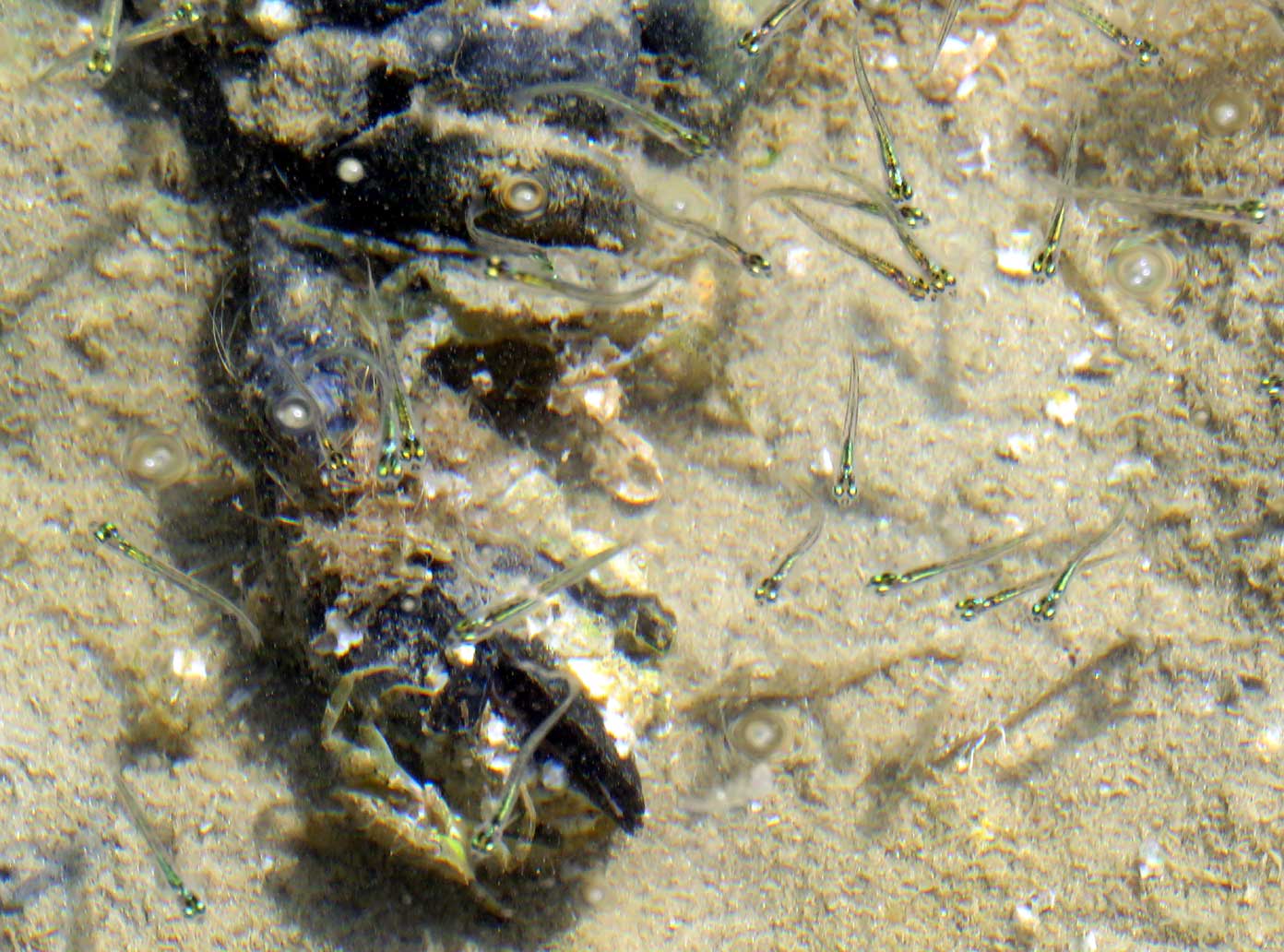 |
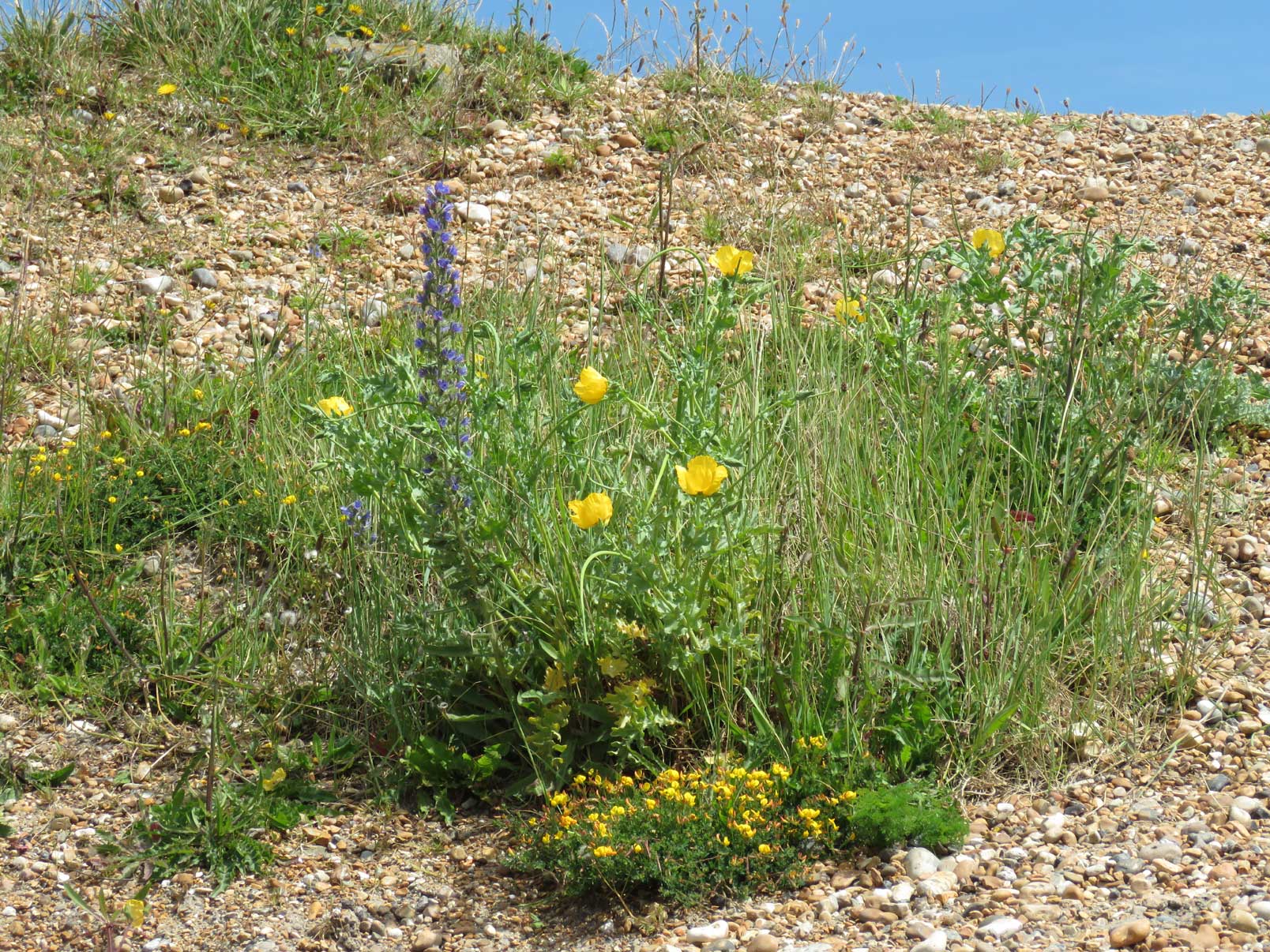 |
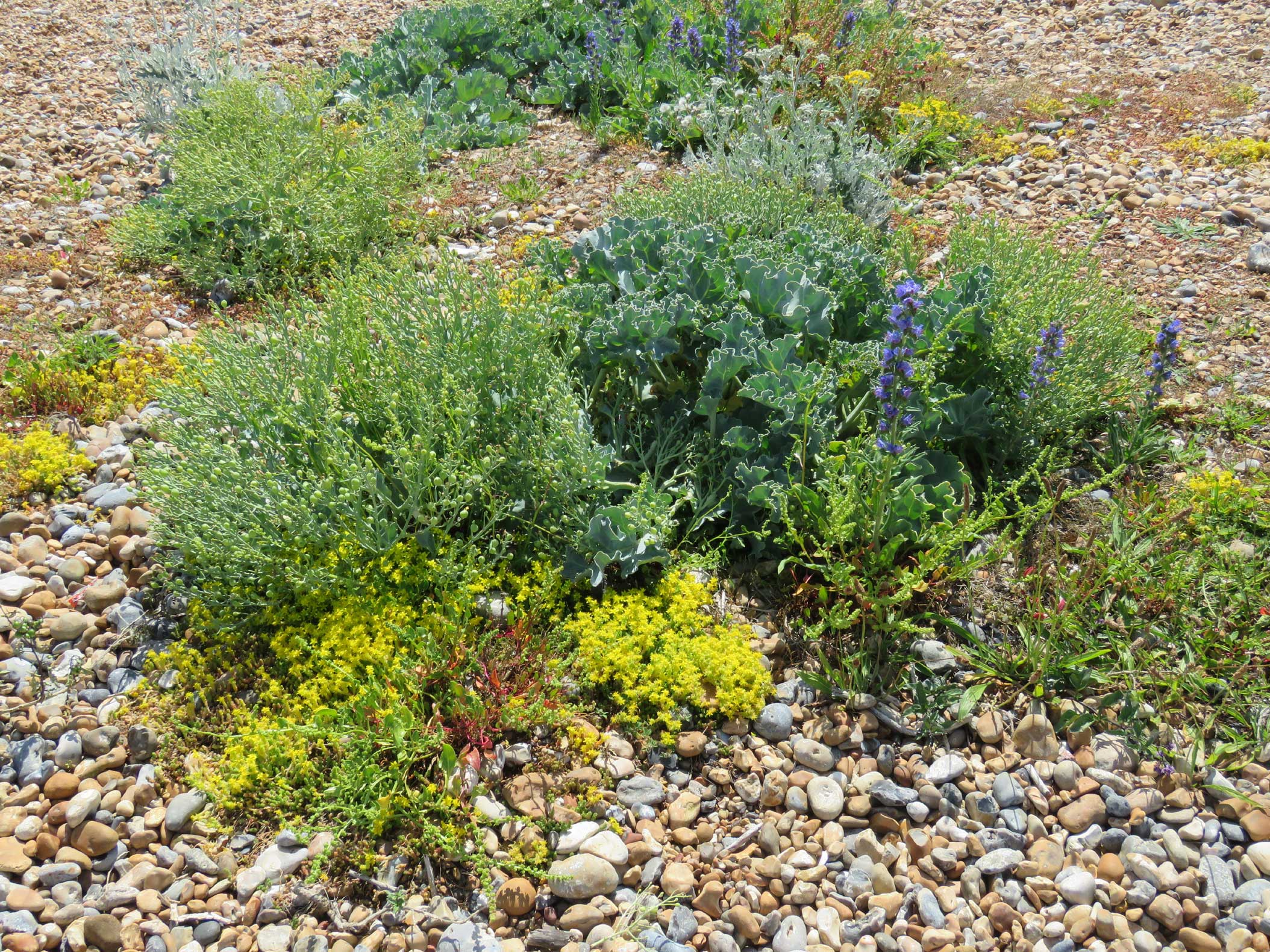 |
|
|
|
|
On
dry land under the noon sun, only two Wall
Lizards were seen, one quickly skitting
in amongst the undergrowth and the second one clambering all over the carnot
wall, before disappearing into a hole very near the top. The one lizard
seen clearly for a few minutes showed remarkable agility on the vertical
flint walls (which were brick at the top). The beach was still looking
attractive especially in the area of the boardwalk with Yellow-horned
Poppy, Silver Ragwort, Viper's Buglossand
Biting
Stonecrop looking splendid in flower.
Adur
Lizards
23 June 2015
Shoreham Beach East
22 June 2015
Shoreham
Beach East
Viper's
Bugloss, Great Mullein. Common
Poppy
Childing
Pink, Hare's
Foot Clover
18 June 2015
Tub Gurnard
Small Bass, Tub Gurnard, Flounders and an adult Black Bream and a Blenny were caught of Southwick Harbour Arm on the high tide. Two Red Admiral Butterflies flew in off the sea.
Southwick
Beach
Biting
Stonecrop, Thrift,
Sea Mayweed, Sea Beet
Bird's
Foot Trefoil, Thrift,
Hop Trefoil
10 June 2015
Southwick
Beach
Sea
Beet, Thrift,
Silver Ragwort
Yellow-horned
Poppy, Kidney Vetch
Silver
Ragwort, Bird's Foot Trefoil, Sea Mayweed, Sea
Beet
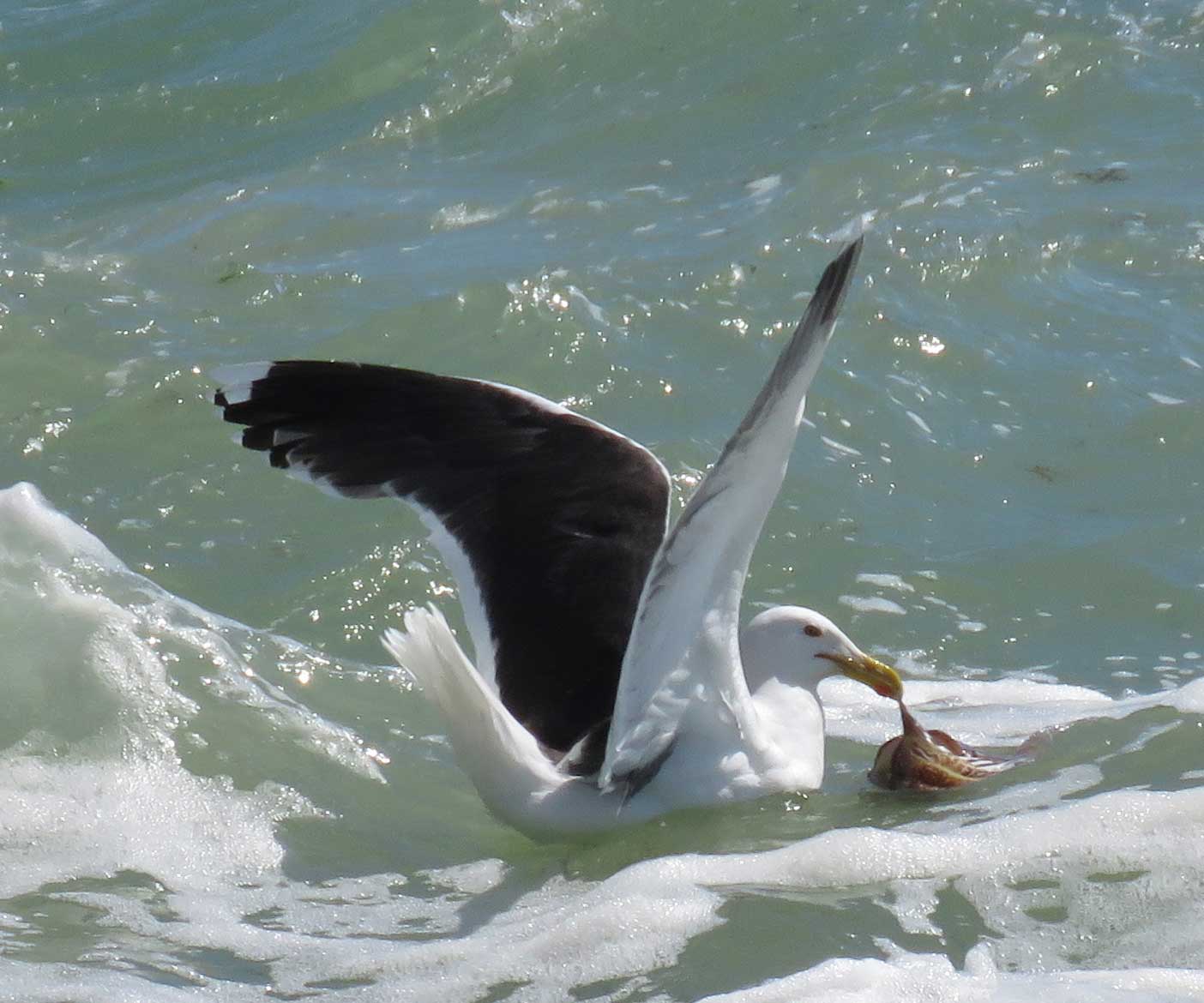 |
6
June 2015
My first Hummingbird Hawk-moth, Macroglossum stellatarum, of the year flew straight into the carnot wall on the south side of Shoreham Fort. This was the same location that this moth was seen last year and the moth flew rapidly along the high flint wall, not seeming to be able to get past it. On a sunny day in a Strong Breeze (Force 6) gusting to Gale Force 7 the vegetation at the foot of the wall was long and I did not manage to spot any Wall Lizards that are often there. There were a couple of Small White Butterflies and three male Common Blues blown around the beach flowers. On the rough sea a Greater Back-backed Gull has found something large and interesting to try and eat on the surface but seemed to be beaten by the waves. |
3
June 2015
To
great birdwatching excitement, a rare (less than one a year in Sussex)
Red-necked
Phalarope,
Phalaropus
lobatus, made a fleeting evening visit to Widewater
Lagoon, but after appearing to settle down to roost, it was gone before
dawn to the disappointment of the early risers.
31 May 2015
Friends of Shoreham Beach Wild Flower Walk
 |
 |
 |
 |
|
|
|
|
|
The Friends of Shoreham Beach Wild Flower Walk started off in a blustery way, blown about by a Strong Breeze (Force 6) gusting to Gale Force 8, low flying clouds, poor light and a few spots of rain that developed into a drizzle later in the afternoon. This made photography difficult to impossible. Highlights of the walk included the local rarity known as the Starry Clover that had finished flowering and at the calyx stage and had been mown flat, the peak flowering of the Sea Kale, the vast expanses of Red Valerian, the first Yellow-horned Poppy, the very frequent Slender Thistle, the previously unmentioned (or overlooked or mistaken identity) diminutive Dove's Foot Cranesbill Geranium pyrenaicum or Geranium molle, the local patch of the campion-like Italian Catchfly Silene italica, the newly flowering Kidney Vetch and Viper's Bugloss, the sturdy Tree Mallow, a patch of Mouse-eared Hawkweed, and the wind battered Sea Campion.
Tree Mallow
16 May 2015
The pair of Mute Swans on Widewater Lagoon still had seven cygnets.
6 May 2015
Gales
battered the shore throughout the day, a steady Fresh Gale Force
8 gusting to Storm Force 10 was recorded by Shoreham
Beach Weather Station.
Shoreham
Weather Page
1 May
2015
A
pair of Mute Swans
were seen by others with seven cygnets on Widewater Lagoon.
18
March 2015
The
tide
receded to end of Worthing Pier
and a small flock of Turnstones
probed amongst the rocks.
The intertidal fauna was unexceptional with nothing of note.
17 March 2015
I cycled past Widewater Lagoon on a passage trip from Worthing in the fading light, and spotted mostly upturned Teals in a raft of over a dozen, two Red-breasted Mergansers, a feeding Little Egret and a Redshank. A Black-headed Gull was in summer plumage.
16
March 2015
There
were over a hundred egg
cases of the Undulate Ray, Raja
undulata, were washed in a small area
of strandline and blown against the carnot
walls of Shoreham
Fort.
2 March
2015
A
dolphin
was discovered washed up dead on Shoreham Beach near the Burrells. It was
is a decrepit condition and most likely to be a Common
Dolphin, Delphinus delphis.
27
February 2015
 |
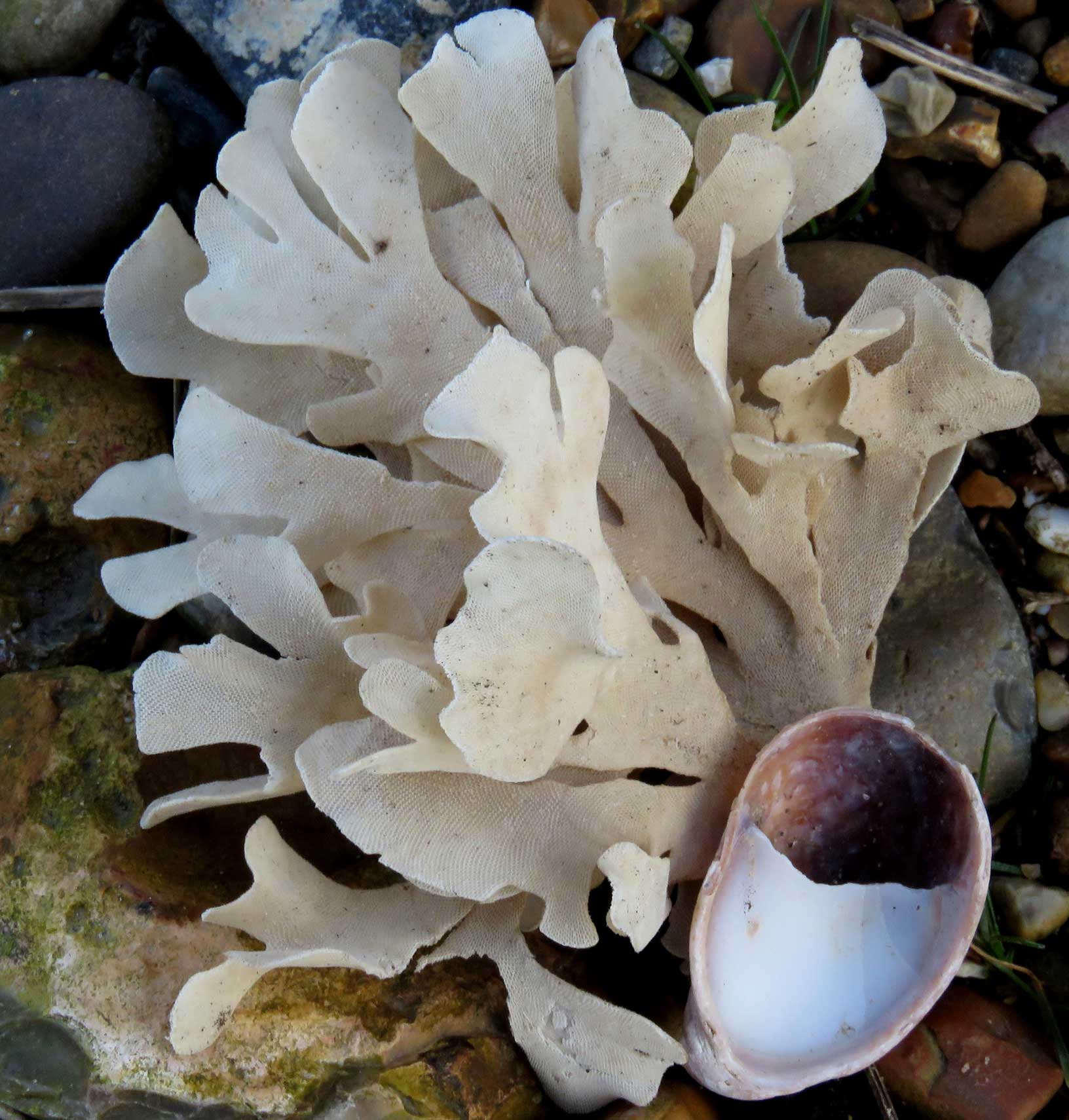 |
|
|
|
The slightest thing of interest was an elevated number of empty Common Whelk shells on the strandline. About one every two seconds could be found scattered amongst the seaweeds and Lignite on the shingle beach next to Widewater.
4 February 2015
Crow's Anvil, Kingston Buci Beach
22 January 2015

Barrel
Jellyfish, Rhizostoma octopus
Photograph
by Margaret
Burton
Two large Barrel Jellyfish, Rhizostoma octopus, were discovered washed up on the shore at Lancing.
20
January 2015
Three
Little
Grebes dived under Widewater and one surfaced
with a Stickleback
in its beak.
A Black-headed
Gull also managed to catch a Stickleback.
 |
18
January 2015
Eventually, I arrived at Widewater when there were four pairs of Red-breasted Mergansers far out on the surface of the lagoon and frequently diving under in the fading light of the late afternoon. The sawbills did not seem to catch any fish and when it surfaced half the birds had weed in their beaks. Redshanks are now regular seen in the shallows of the lagoon, and there were at least two and a Shelduck, with a score or so mostly Black-headed Gulls with a smattering of immature Herring Gulls. On the narrow strandline there was the usual collection of seaweeds and other organic debris and lignite. |
| 14
January 2015
With the wind gusting to Force 7 with a wind chill, it was hard to keep the camera still. There was very little to photograph and even the strandline was devoid of anything much washed up. Hornwrack, Flustra foliacea, and the eggcases of the Lesser-spotted Dogfish, Scyliorhinus canicula, produced the only shot of interest. |
 |
| 4
January 2015
Dogwhelks Nucella lapillus, Mussels Mytilis edulis, and Beadlet Anemones Actinia equina on the rock (Syenite) sea defences of Southwick Beach. |
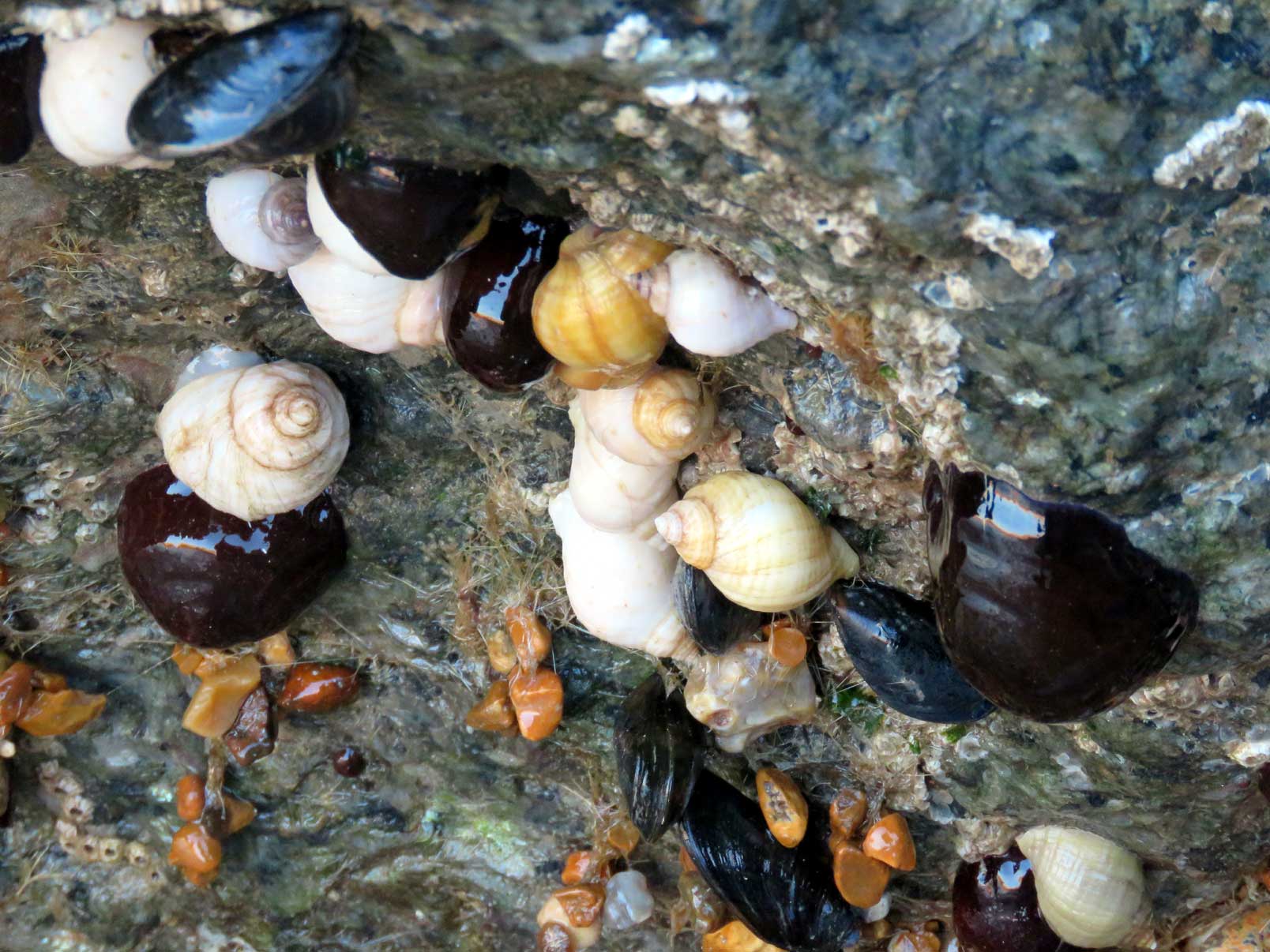 |
 |
2
January 2015
A group of Little Grebes were seen diving under the surface of Widewater Lagoon. A Coot swam on the surface. On the strandline, the amount of seaweed was less than stormy years, but included at least one clump of Mermaid's Purses, the eggcases of the Lesser-spotted Dogfish, Scyliorhinus canicula. |
